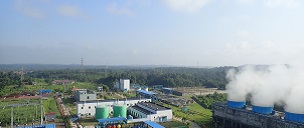All aboard: unlocking cleaner public transport
Decarbonisation is one of Asia's top priorities. This partnership in Hong Kong shows how banks can help companies accelerate their transition to cleaner operations.

Despite its relatively small geographic footprint, Hong Kong’s carbon emissions are a problem: they have been falling since 2015, but at 4.2 tonnes per capita, they remain well in excess of those of many other Asian nations1. Still, the territory is ambitious. Its targets are to halve emissions by 2035, compared with 2005 levels, and to be carbon neutral before 20502.
To get there, Hong Kong’s administrators are focusing on four areas in particular: public transport; clean electricity generation; energy saving and green buildings; and waste reduction. At the same time, they also recognise the need for substantial investments to achieve their goals.
Who pays for transition?
The question is where that money will come from. While some public sector funding is available – including support for Asian decarbonisation from western nations – the private sector will play a crucial role, says Warren Evans, the Asian Development Bank’s Special Senior Advisor on Climate Change. Speaking at the recent Asia Green Tech Summit in Singapore3, he argued that the financial sector will be critical in the race to provide adequate financing and technical support for regional efforts to combat climate change. “Much of our role is to crowd in partners,” Evans said. “The more we can identify concessional sources of finance to combine with our relatively inexpensive money, the easier it is to meet the needs and demands of our client countries.”
A collaboration between DBS Bank – recently ranked as the world’s fifth most sustainable bank4 – and Hong Kong’s Kwoon Chung Bus is a good example of such partnership. In November 2021, DBS Bank announced a HK$348mn sustainability-linked loan for this leading player in Hong Kong’s public transport sector.
The loan is crucial for the company as it pursues its environmental goals. “As part of our commitment to modernise our fleet, we aim to reduce greenhouse gas emissions by 9 per cent in three years,” explains Matthew Wong, BBS, Chair of Kwoon Chung Bus. “These are the targets we have set for ourselves to help Hong Kong achieve zero vehicular emissions before 2050.”
Impact at scale
Private sector financing is critical for public transport businesses as they strive to be more sustainable, says Yulanda Chung, Head of Sustainability in the Institutional Banking Group of DBS Bank. “This financing ensures that these companies can continue to provide affordable but efficient service to customers,” she says. “The investment is for the long term, even though passenger numbers may fluctuate.”
DBS Bank has partnered with Kwoon Chung Bus over the term of the loan, providing support on achieving its decarbonisation plans into broader commercial strategy. “Investment in sustainability is imperative for public transport providers’ business,” the bank emphasises.
“Sustainability-linked loans bring different types of advantage,” adds Yulanda Chung. In some cases, the finance comes with a small discount, reducing the interest rate payable if key sustainability targets are met, but the bigger opportunity is to establish the business’s green credentials. That has the potential to increase its appeal to a range of stakeholders – including other potential providers of funding for green initiatives. “Banks are only one part of the funding ecosystem,” says Chung. “The key is to make your purpose clear, because that is how you will have the biggest impact; it’s a win-win situation if the whole business can move in the right direction.”
Driving global change
Society will benefit as well if public transport providers such as Kwoon Chung Bus can accelerate their transition plans with sustainable finance. Research from McKinsey suggests that across Asia, transport will be the largest addressable market for green services. The consultant puts the value of the market at between US$900bn and US$1.1tn by 2030.
While transport currently accounts for roughly a fifth of global carbon emissions, it is estimated that vehicle electrification could contribute 10 to 15 per cent of the abatement potential needed by 20505. To reach that goal, projects including Kwoon Chung Bus’s move towards reduced carbon emissions are vital.
References:
- Our World in Data.
https://ourworldindata.org/co2/country/hong-kong?country=HKG~OWID_WRL#per-capita-how-much-co2-does-the-average-person-emit - www.climateready.gov.hk/files/pdf/CAP2050_4_en.pdf
- https://asiagreentech.live.ft.com/
- https://fintechmagazine.com/banking/the-top-10-most-sustainable-banks-in-the-world-in-2023
- https://www.mckinsey.com/featured-insights/future-of-asia/green-growth-capturing-asias-5-trillion-green-business-opportunity



